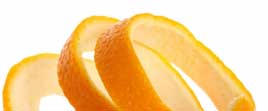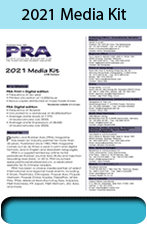Green Materials: Equate’s food-grade PET with 30% chemically recycled content; Citrus-based bottles with VTT’s new FDCA tech

Equipolymers (EQP), a subsidiary of Equate Group has launched Viridis 30, a food-grade polyethylene terephthalate (PET) manufactured with 30% chemically recycled PET as feedstock.
Viridis 30’s roots go back to 2009, when EQP launched Viridis 10 (with 10% recycled PET) with the support of The Coca Cola Company. Viridis complies with the relevant European Commission’s regulations for food contact plastics, meaning it can be used in beverage bottle production as well as in thermoforming applications. In 2016, EQP and Coca-Cola announced Viridis 25, a PET grade containing 25% recycled PET.
The successful development of Viridis 30 reflects Equate’s alignment with the European Commission’s ‘Strategy for Plastics in a Circular Economy’. Adopted in January 2018, the strategy aims to transform the way plastic products are designed, used, produced and recycled in the European Union.
Sudhir Shenoy, Senior Vice President at Equate Group, said: “This new product adds a new milestone to the successful manufacture of recyclable materials without compromising on quality and contributes to improved economic and environmental performance for our customers.”
Muayad Al Faresi, Global Business Director, PET at EQP said: “Viridis 30 is a significant achievement for EQP and for the petrochemical industry. As global demand increases, the transformation of our industry is necessary to create new products that are more sustainable in the long-term. The development of Viridis 30 is aligned with the EU’s target to achieve 25% rPET in packaging by 2025, and 30% by 2030. It highlights our commitment towards innovation - this is a breakthrough that will have far reaching environmental, social and business benefits.”
Viridis 30 which will be available commercially to the European market from Q1 2021.

Meanwhile in other news, plant-based and recyclable plastic bottles are now enabled with technology firm VTT’s new FDCA technology using citrus peel as raw material The new technology developed at VTT enables the use of pectin-containing agricultural waste, such as citrus peel and sugar beet pulp, as raw material for bio-based PEF-plastics for replacing fossil-based PET. The carbon footprint of plastic bottles can be lowered by 50% when replacing their raw material of PET with PEF polymers, which also provides a better shelf life for food.
“In the near future, you may buy orange juice in bottles that are made out of orange peel. VTT’s novel technology provides a circular approach to using food waste streams for high-performance food packaging material, and at the same time reducing greenhouse gas emissions,” shares Professor of Practice Holger Pöhler from VTT”.
The annual production of PET products is estimated at 30 million tonnes. Replacing fossil-based PET with plant-based PEF (polyethylene furanoate) polymers can lower the carbon footprint of the products by 50%.
Moreover, the barrier properties of PEF plastics are better than PETs, meaning that the food products have a longer shelf life. PEF is a fully recyclable and renewable high-performance plastic. Therefore, it opens up possibilities for the industries to reduce waste and to have positive impact on the environment.
VTT’s technology has significant advantages for making bio-based PEF plastics. The technology uses a stable intermediate for the production of FDCA (2,5-furandicarboxylic acid), one of the monomers of PEF, which enables a highly efficient process. In addition, utilising pectin-containing waste streams opens up new possibilities for the circular economy of plastics.
VTT’s unique scale-up infrastructure from laboratory to pilot scale ensures that this new technology will be brought to a technology readiness level that will allow polymer manufacturers’ easy transition to full scale.
VTT has patented the technology, and the research has been published in the scientific journal Green Chemistry on 7 December 2020: A unique pathway to platform chemicals: aldaric acids as stable intermediates for the synthesis of furandicarboxylic acid esters, https://doi.org/10.1039/D0GC02293D
(PRA)
Subscribe to Get the Latest Updates from PRA Please click here
©2020 Plastics and Rubber Asia. All rights reserved.

©2020 Plastics and Rubber Asia. All rights reserved.
Home Terms & Conditions Privacy Policy Webmail Site Map About Us
















